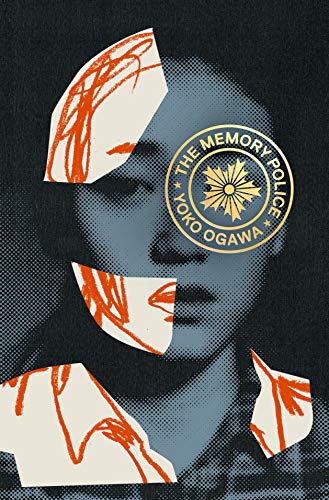


Full description not available
J**R
The review made it so much better
I read the novel based on a short mention in the NY TIMES BOOK REVIEW podcast. I had no background or information about the author. The novel started well but by the end I was glad to have it done. It didn't click for me and when I thought that I understood her central thesis, I felt it could have been more powerfully stated. So I gave it a generous 3-star rating.THEN I read Motoko Rich's review in the NY TIMES, and things suddenly fell into place. Knowing a bit about the huge influence Anne Frank had on Ogawa, about revisionist Japanese history and the problems often faced by those who contradict the official version, and other key insights provided by Rich made everything make sense. Then it became a 5-star book.So I really encourage potential buyers to look up Rich's review. Armed with a bit of background, I think you will like the book so much more.
S**N
Objects of our affection
To me, there is a distinctive Japanese literary voice, matching the elegance of the paper, calligraphy, silkscreens, etc. This novel speaks in that voice, with careful description, deep internal tapestry among the protagonists, sparely drawn sentences, and delicate atmospherics of weather, food and nature. The Memory Police seems Borgesian, though, in the way it asks us to explain the meaning of the objects that we surround ourselves with, the relationship we have to power, and the meaning of loss. The novel within the novel is horrifying, but the overall message is one of entropy. The central fact is that we surrender to it, like it or not, Memory Police or not. I loved the translation, though I can't comment based on my reading of Japanese. It just felt authentic and faithful. Well worth reading.
D**N
mixed feelings for this book
i loved the idea of this book. i also enjoyed the atmosphere/setting of the book, at least in the beginning. and then i began to feel that the author was almost purposely keeping the book "dull" as a technique to add filters to the story. but for me, i kept looking for places for the book to heighten and deepen, and it never happened. when the book finally did escalate, it did so very quickly (duh) and without depth. one moment we are loosing the memory of feathers and emeralds (so poetic!) and then suddenly the loses escalate to body parts and then BAM the story is over. it's not a book i'll keep on my shelf, but i am passing it on for others to read. perhaps it was unfair of me to want the book to produce something i wanted rather than me accepting what the book was offering.
K**C
Memories behind a heartbeat
Dream like, more Murakami than Orwell (despite being pointed out), this intriguing novel quietly makes a reader aware of the importance of memory and identity. I didn't realize until after finishing it that it was written 25 years ago, thinking that its timeliness and lack of technological elements was to underscore the overall theme of oppression by the state. The narrator, unnamed, lives on an island one would presume off the coast of Japan, still plying her trade as a novelist despite the fact that items are disappearing not only from their physicality but also from the collective memory. As the disappearances become more and more serious, the passivity of the residents as personified by our narrator are more and more disquieting. This raised several areas of possible discussion. The case of the frog being put into the pan of water that is heated incrementally not noticing that fact until it is too late? Or negation of the Falkner observation that "The past isn't dead. It's not even past." Much to provoke the imagination here.
C**H
Timely, thought provoking...
Wonderful novel. The scariest thing about it is the complacency of the inhabitants of the island. If you want to know what I'm talking about, read the book. We, the people living in the USA, seem to have a similar problem. We tend to forget recent history. On the other hand, it can be dangerous to remind our fellow citizens about the not so distant past and what a profound impact it has made on our current lives. We, too, have memory police, they are the members of the entertainment industry.
Trustpilot
1 month ago
1 month ago